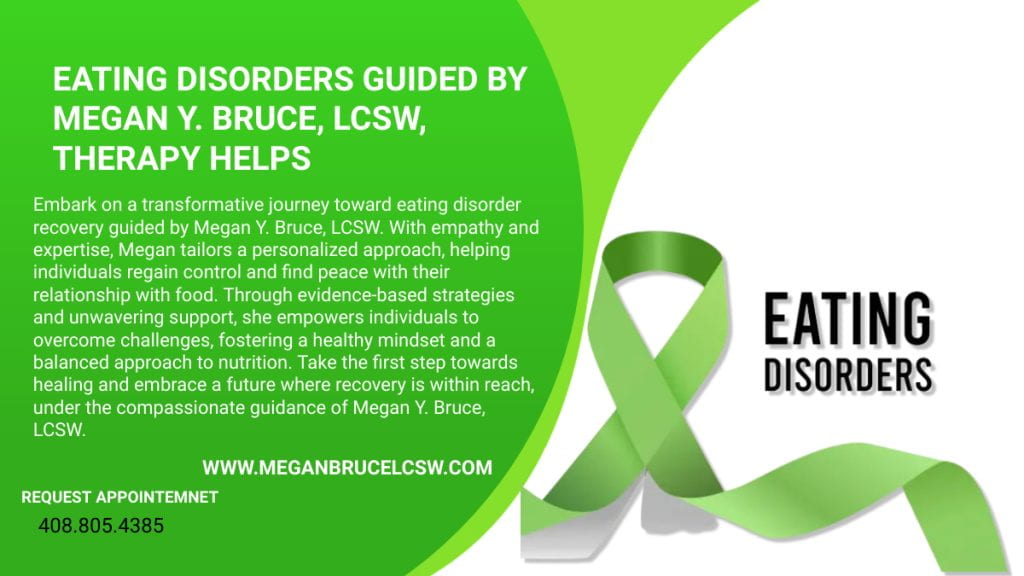Eating Disorders Unveiled: A Comprehensive Guide for All
Author : Meganbruce Lcsw | Published On : 18 Mar 2024

Eating disorders are complex mental health conditions that can affect individuals of any age, gender, or background. They are characterized by irregular eating habits and severe distress or concern about body weight or shape. Understanding the types, symptoms, causes, and available treatment options is crucial for promoting awareness and supporting those affected by these disorders.
What Are Eating Disorders: Types, Symptoms, and Causes
Eating disorders encompass a range of conditions, each with its own unique characteristics. The main types include:
- Anorexia Nervosa: Individuals with anorexia nervosa have an intense fear of gaining weight and a distorted body image. They often restrict their food intake, leading to severe weight loss and malnutrition.
- Bulimia Nervosa: Bulimia nervosa involves episodes of binge eating followed by purging behaviors such as vomiting, excessive exercise, or the misuse of laxatives or diuretics.
- Binge Eating Disorder (BED): BED is characterized by recurrent episodes of uncontrollable binge eating without the purging behaviors seen in bulimia nervosa.
- Other Specified Feeding or Eating Disorders (OSFED): This category includes eating disorders that don’t meet the criteria for anorexia, bulimia, or binge eating disorder but still cause significant distress or impairment.
Symptoms of eating disorders may vary depending on the specific type but can include extreme weight loss or fluctuations, obsession with food, calories, and dieting, avoidance of social gatherings involving food, and noticeable fluctuations in mood or energy levels.
The causes of eating disorders are multifaceted and may involve genetic, psychological, environmental, and cultural factors. Genetics and family history, psychological factors such as low self-esteem and perfectionism, societal pressure to attain unrealistic body ideals, and co-occurring mental health conditions like anxiety and depression can all contribute to the development of eating disorders.
There is growing evidence suggesting a potential link between Attention Deficit Disorder (ADD) or Attention Deficit Hyperactivity Disorder (ADHD) and eating disorders. Individuals with ADHD may exhibit impulsivity, difficulty regulating emotions, and low self-esteem, which could predispose them to developing disordered eating patterns as a coping mechanism.
Therapy for Eating Disorders: Family-Based Therapy and Counseling
Treatment for eating disorders often involves a multidisciplinary approach tailored to the individual’s needs. Two commonly utilized treatment modalities include:
- Family-Based Therapy (FBT): FBT involves the entire family in the treatment process, with the goal of restoring a healthy eating pattern and addressing family dynamics that may contribute to the eating disorder.
- Eating Disorders Counseling: Individual or group therapy sessions with a qualified therapist specializing in eating disorders can help individuals explore the underlying issues driving their disordered eating behaviors and develop coping strategies for recovery.
Meet Therapist Megan Y. Bruce, LCSW
Megan Y. Bruce, LCSW, is a dedicated therapist based in San Francisco, CA, specializing in the treatment of eating disorders. With her expertise and compassionate approach, Megan provides support and guidance to individuals and families navigating the complexities of eating disorder recovery. If you or someone you know is struggling with an eating disorder, you can contact Megan Y. Bruce at 408.805.4385 to schedule a consultation.
In conclusion, raising awareness about eating disorders, understanding their types, symptoms, and causes, recognizing the potential link between ADHD and eating disorders, and accessing appropriate therapy and counseling are essential steps in supporting individuals affected by these conditions. With increased awareness and access to effective treatment options, we can promote recovery and improve the well-being of those impacted by eating disorders.
